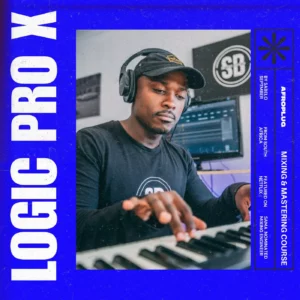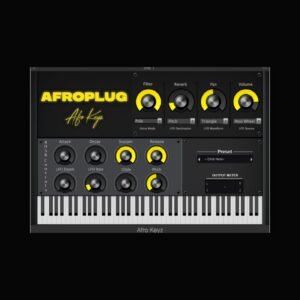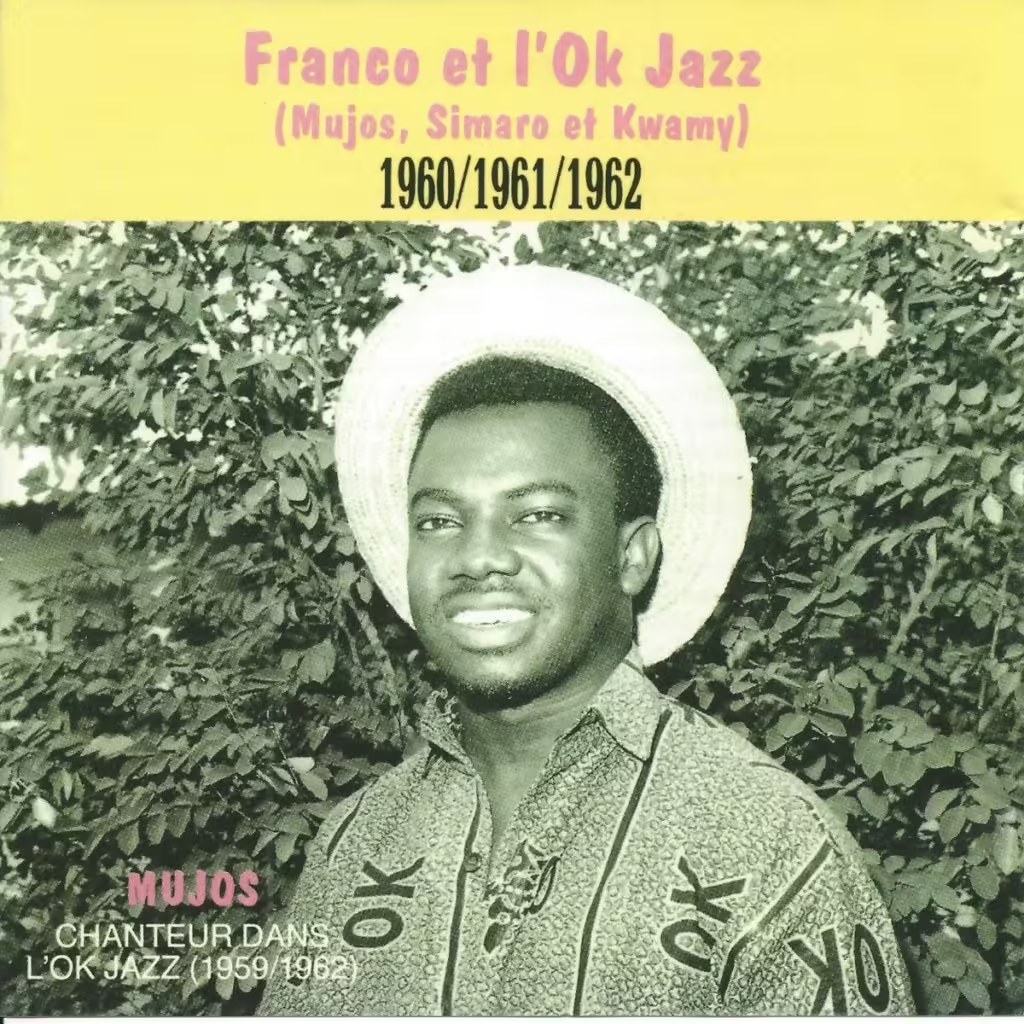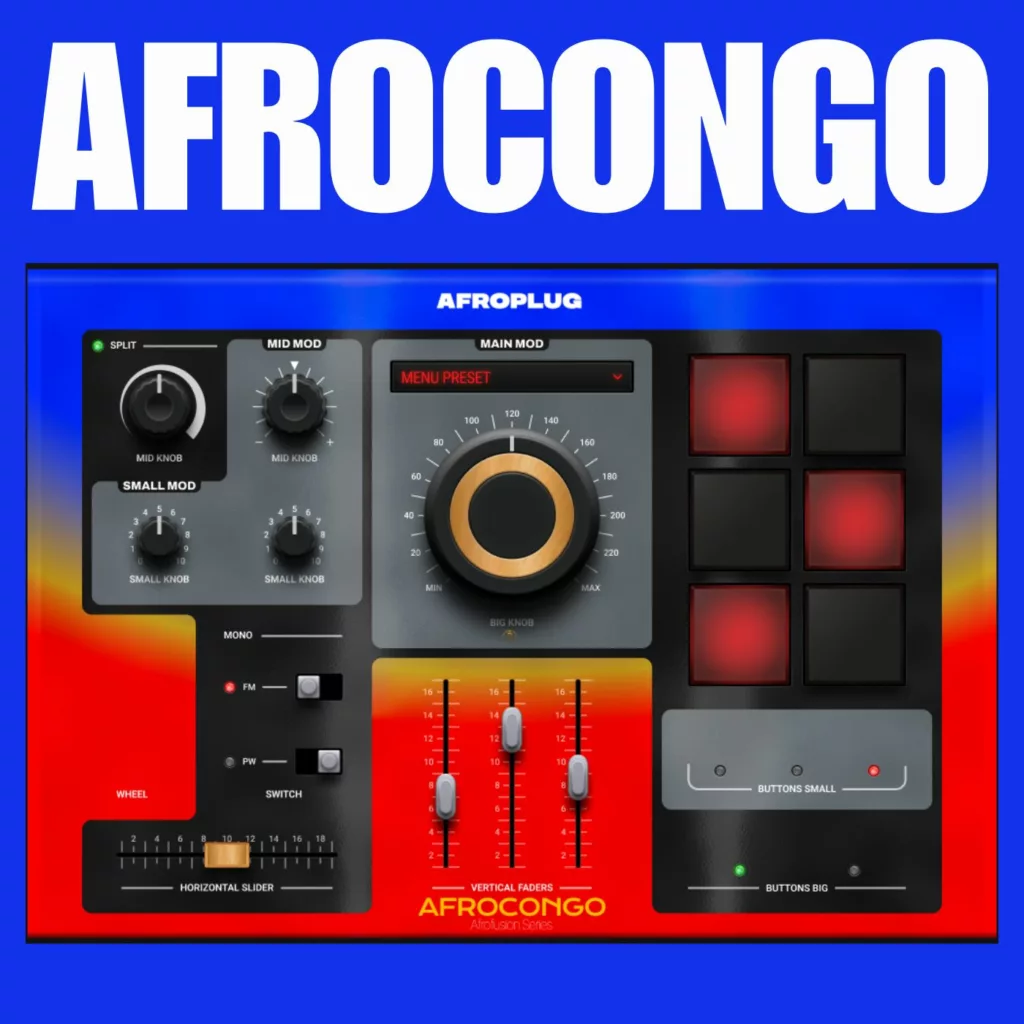You can contact us 24/7 via our Support team
€0.00
Best discounts this week for your next hits
Shattayard – Dancehall Shatta VST
All Blog Posts
Cart
Products
-
 Logic Pro X - Beginner Mixing & Mastering
Logic Pro X - Beginner Mixing & Mastering
€126.47Original price was: €126.47.€42.16Current price is: €42.16. -
- PluginsAfrobeats, Afropop
Rated 4.47 out of 5€0.00 – €54.80Price range: €0.00 through €54.80 -
- Loops & SamplesAfro, Afrobeat, Afrobeats, Afrofusion, Afrosoul
-
- Loops & Samples3 step, Afrohouse, afrotech, Amapiano
Rated 5.00 out of 5€59.02Original price was: €59.02.€33.72Current price is: €33.72.
Recent reviews
-
 Kompa Plug VST
Rated 4 out of 5by César
Kompa Plug VST
Rated 4 out of 5by César -
 Afro Keyz - Synth VST
Rated 5 out of 5by ธนาศักดิ์ งานพงศา
Afro Keyz - Synth VST
Rated 5 out of 5by ธนาศักดิ์ งานพงศา -
 Afrowave
Rated 5 out of 5by Oghenekohwo Gbenedio
Afrowave
Rated 5 out of 5by Oghenekohwo Gbenedio -
 Afro Keyz - Synth VST
Rated 5 out of 5by Oghenekohwo Gbenedio
Afro Keyz - Synth VST
Rated 5 out of 5by Oghenekohwo Gbenedio
When you think of music that changed the world, your mind might jump to American Blues, British Rock, or Jamaican Reggae. But there’s another revolution that transformed not just a country, but an entire continent – and then the world. This is the story of Soukous, Congo’s golden sound that turned guitar players into kings and made the whole world dance.
Picture yourself in 1950s Léopoldville (now Kinshasa). The sun has set, and the vibrant nightlife is just beginning. From every bar and club, hypnotic guitar melodies float through the warm evening air. This is the sound that would change African music forever – this is Soukous.
The Cuban Connection
It all started with a fascinating twist of fate. In the bustling ports of colonial Congo, sailors and merchants unloaded not just cargo, but also precious Cuban records. These vinyl treasures carried rhythms that felt strangely familiar to local ears. And for good reason – these were African rhythms that had survived the Atlantic crossing, evolved in Cuba, and were now making their way home.
Want to recreate these classic sounds? Check out our AfroCongo VST plugin, capturing the essence of vintage Congolese music
The Guitar Heroes Emerge
Enter Franco, the man who would become known as the “Sorcerer of the Guitar.” As a young boy selling bread on the streets of Léopoldville, he taught himself to play on a homemade guitar fashioned from a tin can. No one could have guessed that this street vendor would revolutionize African music.
“Soukous didn’t just change African music – it rewrote the rules of what African guitar could be”

When Franco’s fingers first danced across his guitar strings in a small Léopoldville bar, no one could have predicted that this sound would soon echo from Dakar to Madagascar, from Paris to Tokyo. Yet Soukous, Congo’s golden sound, did exactly that. This is the story of how Congolese musicians created a musical empire that still influences global pop today.
In smoky clubs and packed dancehalls, Franco and his band OK Jazz developed something magical. They took those returning Cuban rhythms and created something entirely new. The secret? A revolutionary guitar technique called ‘sebene’ – where interweaving guitar lines created a mesmerizing dance of melody and rhythm.
The Golden Age: the 1960s
By the 1960s, Soukous was unstoppable. Imagine walking through Kinshasa on any given night. From every corner, you’d hear the sound of competing bands, each adding their own flavor to the evolving style:
- African Jazz, led by the elegant Grand Kallé
- OK Jazz, with Franco’s mesmerizing guitar work
- African Fiesta, where Tabu Ley Rochereau’s smooth voice reigned supreme
By the 1960s, Soukous isn’t just music – it’s a movement. African radio stations from Abidjan to Nairobi can’t get enough. The guitar patterns become a template for:
- Highlife in Ghana
- Benga in Kenya
- Makossa in Cameroon
[Experience these classic patterns yourself with our Soukous Essentials Loop Pack
A Cultural Revolution
“When you hear Soukous guitar, your body moves before your brain knows why” – Papa Wemba
Imagine standing in a crowded Kinshasa nightclub in 1969. The air is thick with excitement. Suddenly, those signature crystalline guitar notes cut through the night. One guitar weaves a spell, another answers, and before you know it, hundreds of bodies are moving as one. This is Soukous – Congo’s gift to African music.
But Soukous was more than just music. It sparked a cultural revolution that spread across Africa. The elegant dance moves, the fashionable ‘Sape’ culture of well-dressed gentlemen, the poetry of Lingala lyrics – Soukous became a complete way of life.
In Tanzania, they called it “Muziki wa Dansi.” In Kenya, it shaped the development of Benga music. Even in West Africa, you could hear its influence in the guitar styles of emerging genres.
The Paris Years
When political turbulence hit Zaire (now DR Congo) in the 1970s, many musicians found refuge in Paris. But this exile didn’t dim Soukous – it made it shine brighter. In the studios of Paris, the sound evolved:
- Synthesizers joined the guitars
- Production became more polished
- New stars like Papa Wemba & Koffi Olomidé emerged
- The tempo got faster, creating the “fast Soukous” style
The Legacy Lives On
Today, when you hear the intricate guitar work in modern Afrobeats or the layered rhythms of contemporary African pop, you’re hearing the echo of Soukous. Its influence is everywhere, from Burna Boy’s hits to the latest Congolese stars.
The secret wasn’t just in the notes – it was in the feeling. Soukous had something special:
- Hypnotic guitar patterns that made dancing irresistible
- Joy-filled melodies that transcended language barriers
- Complex rhythms that spoke to both African and Western audiences
- A sophisticated style that influenced fashion and culture
In the hands of Congolese musicians, something magical happens. They don’t just copy the Cuban sound – they transform it. Enter the birth of modern African guitar music:
- Dr. Nico invents the ‘mi-solo’ style
- Franco develops his signature sebene
- Papa Wemba adds his crystalline melodies
- Tabu Ley Rochereau brings in vocal innovations
Soukous did more than conquer – it united. It showed the world that African music could be sophisticated, modern, and globally appealing while staying true to its roots. From the streets of Kinshasa to the clubs of Paris, from the radios of East Africa to the festivals of Japan, Soukous proved that music truly has no borders.

Today, as new generations discover and reinvent these sounds, one thing is clear: Soukous isn’t just Congo’s gift to Africa – it’s Africa’s gift to the world.
[Ready to add authentic Soukous elements to your music? Our AfroCongo plugin brings these classic sounds into your modern DAW]
The Sound of Soukous Today
Modern producers are rediscovering these timeless sounds. The hypnotic guitar patterns, the driving rhythms, the joyful energy – they’re all finding new life in contemporary productions. Whether you’re making Afrobeats, Afro-house, or any modern African genre, understanding Soukous can add that special magic to your tracks.
The Legacy: From Yesterday’s Bars to Today’s Charts
Listen to today’s Afrobeats hits, and you’ll hear Soukous’ DNA:
- The guitar patterns in Burna Boy’s tracks
- The dance moves in modern African pop
- The production style in contemporary Congolese music
- The global fusion approach that defines modern African music
Why Soukous Matters
In the end, Soukous is more than just a genre. It’s a testament to the power of cultural exchange, creativity, and the unifying force of music. From its humble beginnings in colonial Congo to its status as a pan-African phenomenon, Soukous shows us how music can transcend boundaries and bring people together.
Next time you hear those signature guitar lines or feel the urge to move to that infectious rhythm, remember – you’re experiencing a piece of African musical history. A history that continues to shape the sound of today and tomorrow.
Want to be part of this musical legacy? Explore our Soukous production tools at Afroplug.com

